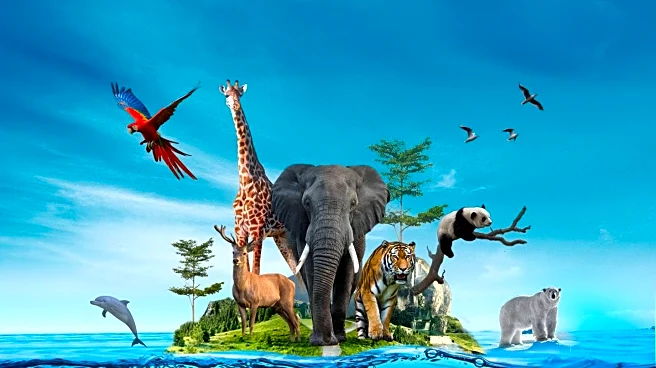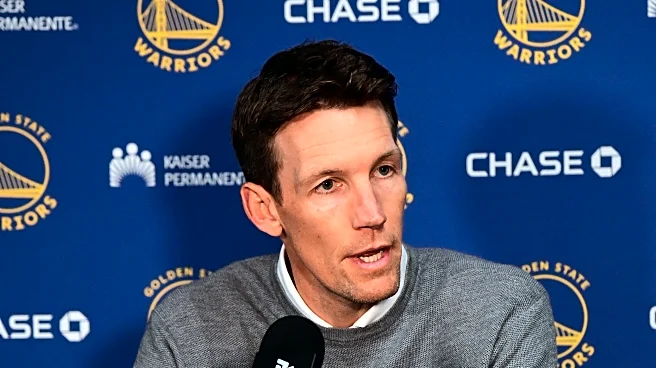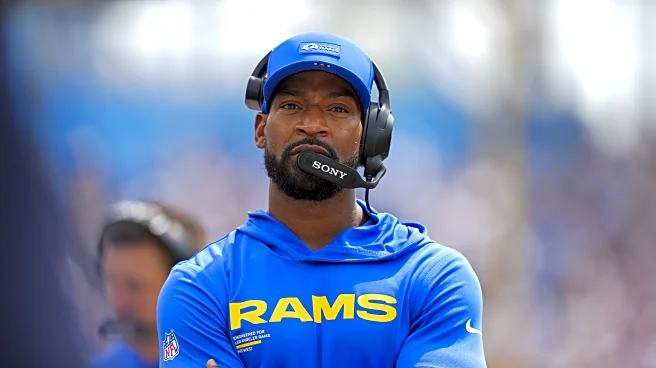What's Happening?
A recent letter to the editor in the Los Angeles Times highlights concerns over the media's focus on the treatment of animal carcasses rather than the welfare of living animals. The letter, written by Karen Dawn, founder and director of the animal advocacy nonprofit DawnWatch, criticizes the attention given to incidents involving dead animals, such as the case of a California man accused of decapitating a sea lion. Dawn argues that the media should prioritize the treatment of live animals, especially given the billions raised and killed under poor conditions annually. The letter also references Robert F. Kennedy Jr.'s controversial stance on beef tallow versus seed oils, questioning the environmental impact of the cattle industry.
Why It's Important?
The letter underscores a significant issue in animal welfare advocacy, emphasizing the need for a shift in focus from sensational stories about dead animals to the systemic treatment of living ones. This perspective is crucial as it calls for legal and media attention on practices affecting billions of animals, potentially influencing public policy and consumer behavior. The critique of Kennedy's stance on beef tallow highlights the environmental implications of the cattle industry, which could impact discussions on sustainable practices and environmental conservation. Advocacy groups and policymakers may need to address these concerns to promote ethical treatment and environmental sustainability.
What's Next?
The letter may prompt further discussion among advocacy groups and policymakers about prioritizing the welfare of living animals in media coverage and legal frameworks. It could lead to increased pressure on industries and government bodies to implement more humane practices and regulations. Additionally, the critique of Kennedy's environmental stance might influence public discourse on sustainable dietary choices and the environmental impact of the cattle industry. Advocacy groups may use this opportunity to push for reforms and raise awareness about the broader implications of animal welfare and environmental conservation.
Beyond the Headlines
The focus on living animals rather than carcasses could lead to a cultural shift in how society views animal welfare, potentially influencing ethical standards and consumer choices. This change might encourage industries to adopt more humane practices, impacting the economy and public policy. The environmental critique of the cattle industry could also spark broader discussions on sustainable agriculture and climate change, influencing long-term policy decisions and societal attitudes towards environmental conservation.










